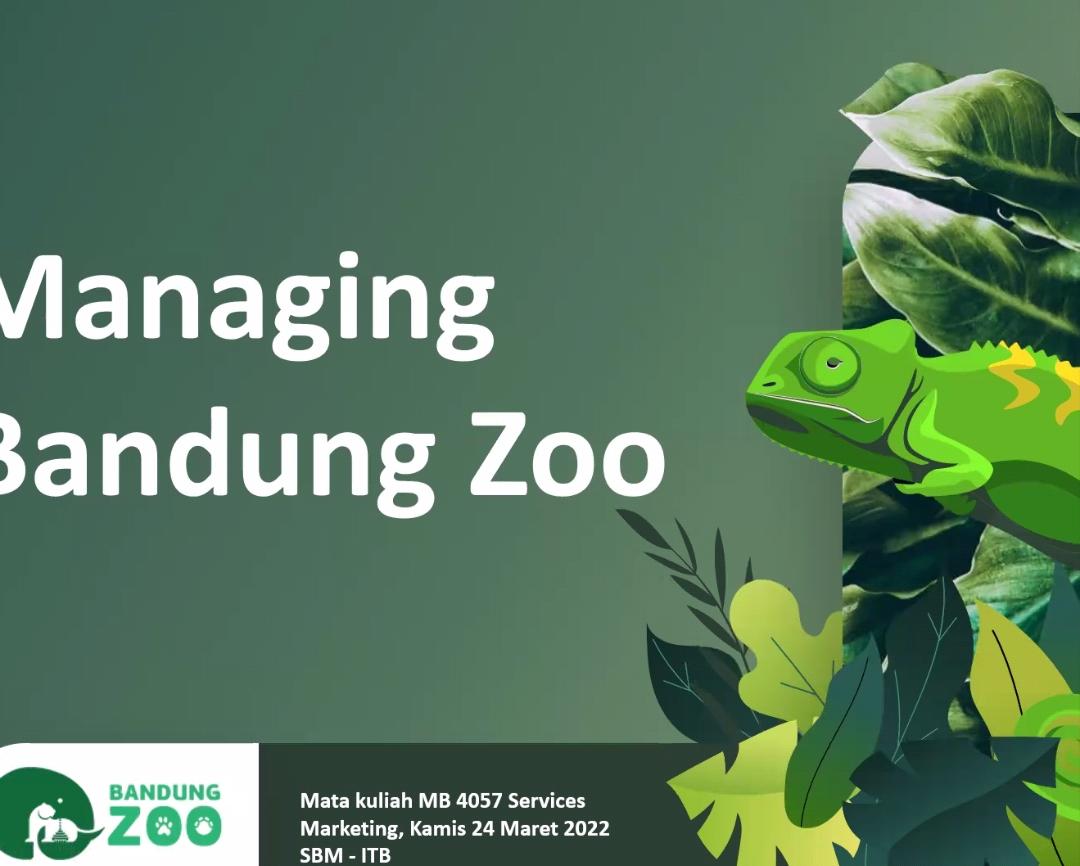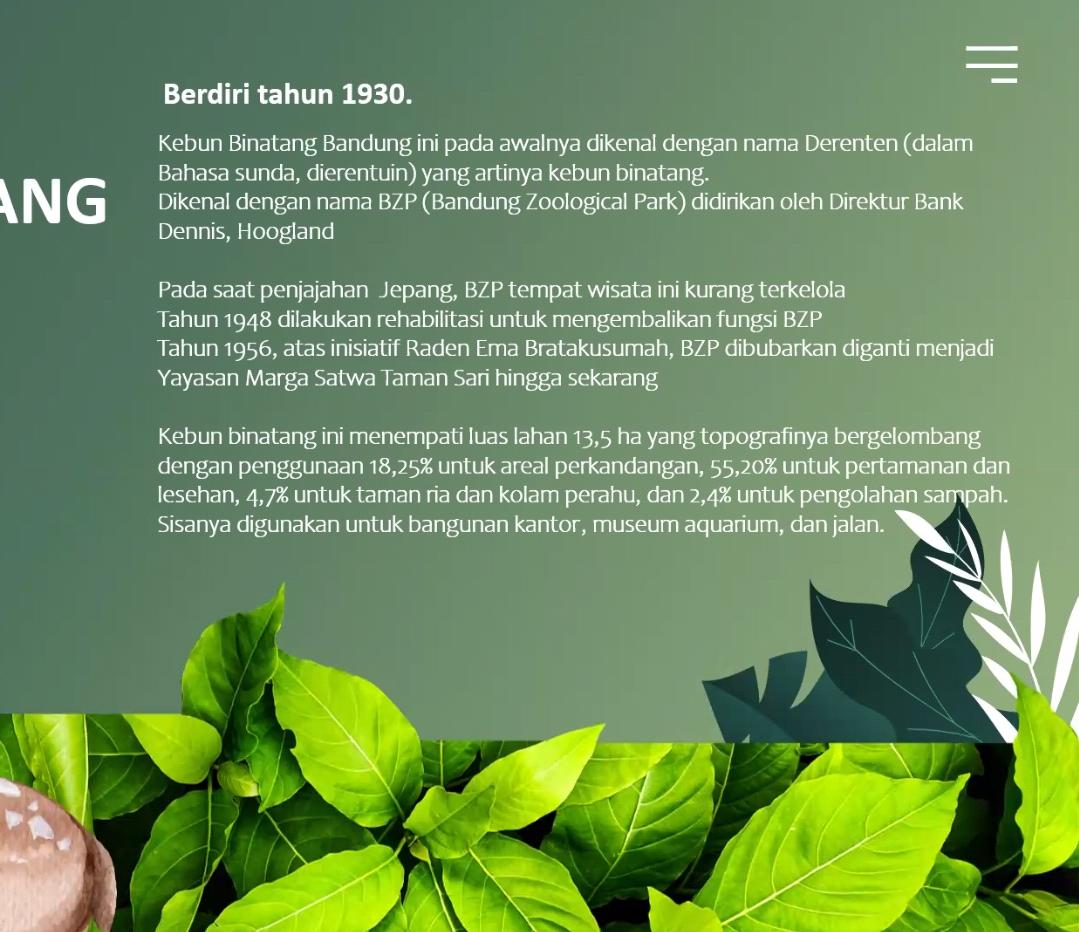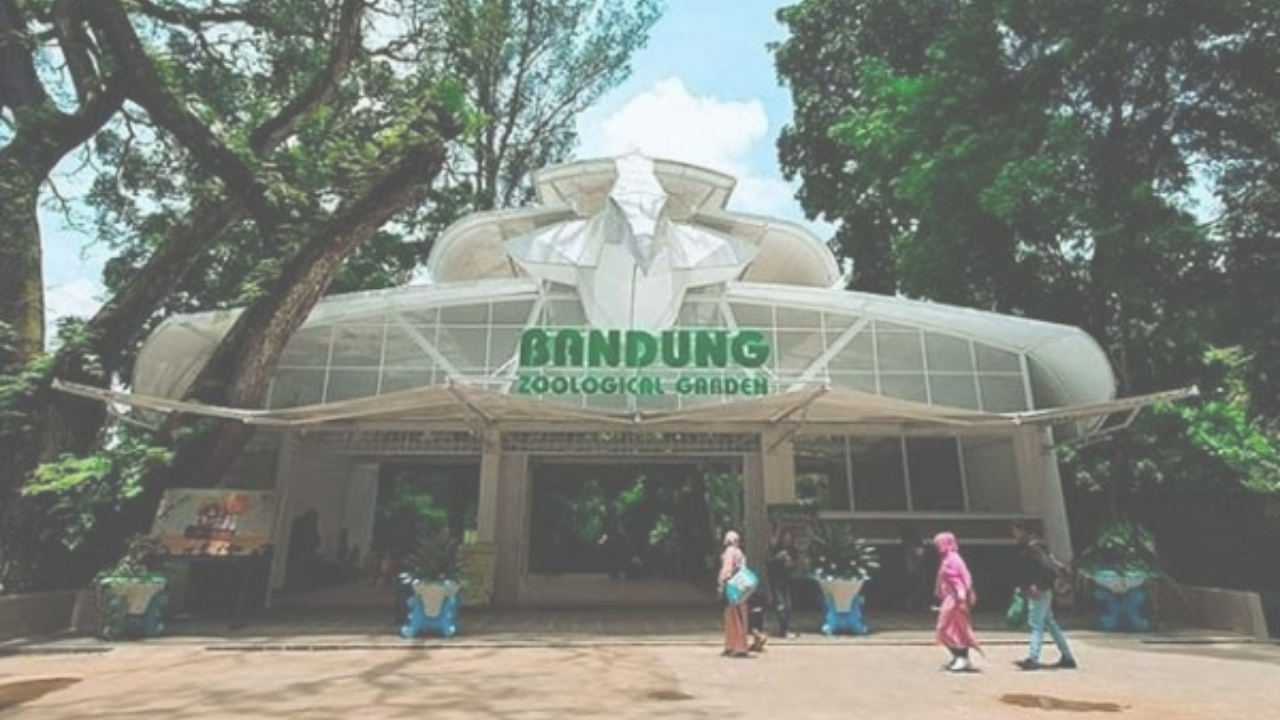Bandung Zoo is one of the oldest and the most well-known recreation and education platforms in Bandung. Located right across from the Institut Teknologi Bandung Campus, on Jalan Tamansari, the Bandung Zoo, is keen to face the current changes and development. In addition to the growing number of competitors in the recreation sector, Bandung Zoo is also dealing with the Covid-19 pandemic that limit its operational activities.
 To find out the Bandung Zoo’s efforts in providing the best service for visitors, SBM ITB, through the Service Marketing course, invited the Sales and Marketing Director of the Bandung Zoo, Mr Martin, to explain their current management.
To find out the Bandung Zoo’s efforts in providing the best service for visitors, SBM ITB, through the Service Marketing course, invited the Sales and Marketing Director of the Bandung Zoo, Mr Martin, to explain their current management.
Bandung Zoo was originally known as Derenten, adopting the Sundanese dialect of the Dutch word ‘Direntuin’, which means Zoo. Also known as Bandung Zoological Park, this facility was established by the director of Bank Dennis, Hoogland, which is currently known as Bank BJB, back in the Dutch Colonial Era.
During the Japanese colonial period, Bandung Zoological Park was not well managed. After the independence of Indonesia in 1948, the Bandung Zoological Park was rehabilitated. In 1956, by the initiation of Raden Ema Bratakusumah, the Bandung Zoological Park changed its name to Yayasan Margasatwa Taman Sari and was also known as the Bandung Zoo. The Bratakusumah family always strives to improve the Zoo management. As a result, management consultants were involved in improving the management of the zoom, now with the legal status of Perseroan (PT). Martin was one of the people involved in this management change.
 The Bandung Zoo, revitalized and known as the Bandung Zoological Garden, has 693 species consisting of Mammals, Aves, Reptiles, Amphibians, and Pisces. The collection was obtained with careful captivity regarding biological and legal aspects regulated by the Indonesian Ministry of Natural Environment. Considering the function of the Zoo as a place for animal rehabilitation, Martin said that this functional aspect is the most important. The profit-oriented activities of the zoo are part of the efforts to support the animal conservation.
The Bandung Zoo, revitalized and known as the Bandung Zoological Garden, has 693 species consisting of Mammals, Aves, Reptiles, Amphibians, and Pisces. The collection was obtained with careful captivity regarding biological and legal aspects regulated by the Indonesian Ministry of Natural Environment. Considering the function of the Zoo as a place for animal rehabilitation, Martin said that this functional aspect is the most important. The profit-oriented activities of the zoo are part of the efforts to support the animal conservation.
In addition to the conservation function, Bandung Zoo also serves as a means of education and research. One example of implementing these functions is the involvement of students from the Department of Biology at the Bandung Institute of Technology and Veterinary Medicine at Padjadjaran University.
Furthermore, management also sees the Zoo as having an entertainment and cultural function. Although it is not the main function, the entertainment and culture are related to the uniqueness of Bandung as a city that prioritizes tourism as one of the main sources of economic activity. For its cultural function, the Bandung Zoo is currently planning to build an Art Garden as one of the supporting facilities, which will provide space for Bandung artists to display works, such as paintings or sculptures of animals.
Bandung Zoological Garden is currently carrying out a change management. The uniqueness of Bandung Zoological Garden as a Zoo certainly resulted in an organizational structure that is different from other business entities. Therefore, a certain unique analysis is needed to change the organization. In recent times, change management in various aspects, especially in the organizational structure and job assignment division for human resources, has been done to support the development of the Bandung Zoological Garden.
The change management at the Bandung Zoo emphasizes the following four aspects:
- Technology-Based Approach: Integration of organizational and operational management through digitization.
- Modern Marketing Approach: Adoption of the latest marketing methods, such as the utilization of social media as a means of promotion.
- Leisure Park: Emphasizing the business aspect of the Bandung Zoo as a recreational facility.
- Customer Experience Based: Emphasizing customer journey for visitors by providing a customized experience.
Regarding the organizational structure, currently, Bandung Zoological Garden is led by a General Manager who oversees three Directorates, namely:
- Finance: Manage finance, accounting, and ticketing.
- Operation: Manages the maintenance and captive breeding of animals as well as the operation of the facility.
- Sales and Marketing: Focus on marketing communication and sales account executives who manage communities and key accounts, such as schools, to visit the Zoo.
In dealing with the Covid-19 pandemic, Martin said that the Bandung Zoo applies the principle of cost-cutting as efficiently as possible to maintain the quality of captivity and animal care. Cost-cutting is ‘inevitably’ carried out due to the drastic reduction in income due to restrictions on community mobility as an effort to stop the pandemic.
Looking at business opportunities, Martin stated that management is always looking for ways to open up opportunities. In addition to revitalizing and improving the core functions of the Zoo, supporting facilities and developments through collaboration with various parties are also continuously carried out to support the business aspects of the Bandung Zoo, which aspires to become a leading reservation, education, and recreation hub in Bandung City.
Written by Student Reporter (Mochamad Daffa, Management 2022)




